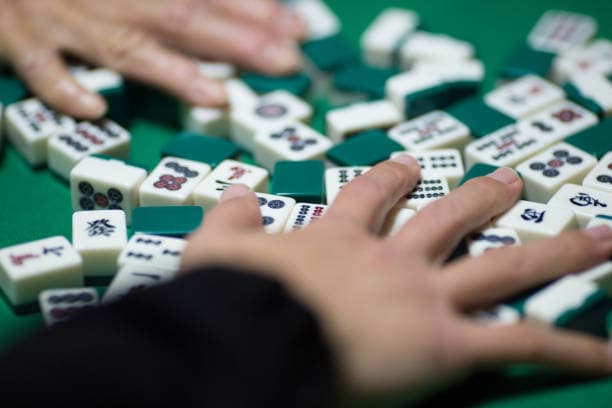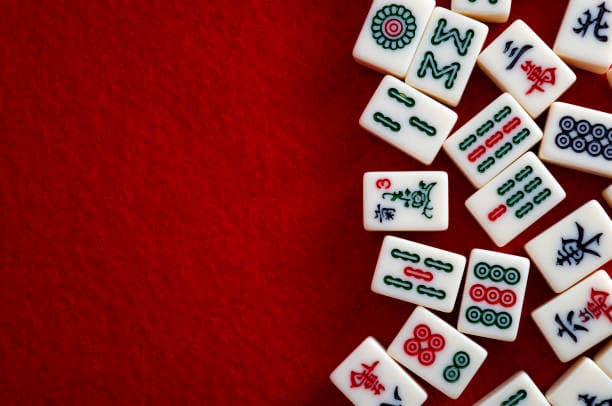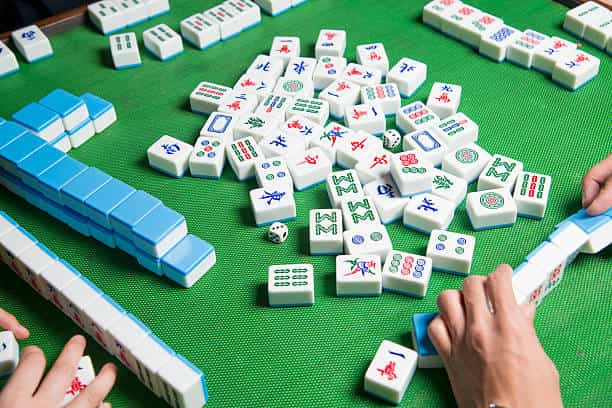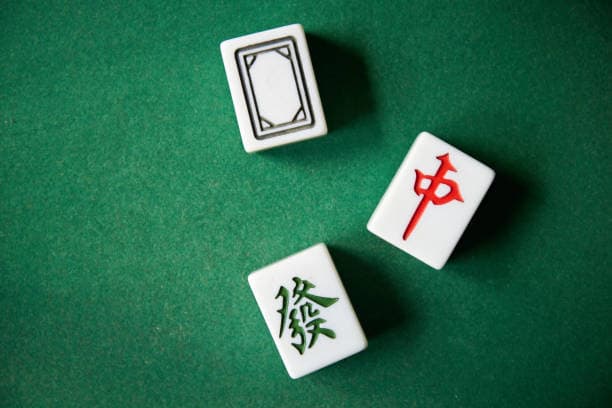Introduction
Mahjong is a captivating tile-based game that has garnered immense popularity not only in East Asian countries but also across the globe. With its intricate gameplay and strategic elements, Mahjong has become a beloved pastime for millions of players.
However, what sets Mahjong apart from other games are the rich cultural significance and long-standing history that surround it. This article aims to explore the fascinating world of Mahjong superstitions and how they influence the way the game is played.
A Game of Tiles
Mahjong originated in China during the Qing Dynasty and quickly spread throughout East Asia, becoming deeply ingrained in the region’s culture. Played with a set of 144 beautifully crafted tiles adorned with various symbols, characters, and numbers, each match offers an opportunity for players to showcase their skills in strategy, calculation, and observation.
The game typically involves four players who take turns drawing and discarding tiles from a wall formation until one of them successfully completes a winning hand or “Mahjong.” The complexity lies in carefully observing opponents’ moves while strategically assembling sets of matching tiles based on predetermined combinations. This interplay between skill, luck, and societal customs makes Mahjong not just a game but an experience that transcends boundaries.
The Cultural Tapestry
In East Asian countries like China, Japan, South Korea, Taiwan, and Hong Kong—where Mahjong holds deep cultural significance—this ancient pastime goes beyond mere entertainment. It symbolizes family bonds, tradition preservation, social gatherings among friends or relatives during festive occasions or leisurely evenings. Passed down through generations as both recreation and connection to ancestral heritage,Mahjong serves as a unifying force within communities.
Mahjong’s historical roots are steeped in centuries-old traditions that reflect the values of harmony, balance, and respect for tradition. Its enduring popularity is testament to its ability to maintain relevance in an ever-evolving world.
A Touch of Superstition
Interestingly, Mahjong is not just a game of skill and strategy; it is also intertwined with a myriad of superstitions that have been passed down for generations. These superstitions add an extra layer of depth to the gameplay, as players believe that certain actions or rituals can either bring good fortune or ward off bad luck. Throughout this article, we will delve into the fascinating realm of Mahjong superstitions and explore their influence on gameplay.
From beliefs about tile selection to table setup customs, these superstitious practices provide a glimpse into the cultural fabric that surrounds this beloved game. So let us embark on a journey through the mystical world of Mahjong superstitions and discover how they shape the experience for players worldwide.
Superstitions Surrounding Tile Selection
Exploring the Belief that Certain Tiles Bring Good or Bad Luck
Tiles hold great significance in the game of Mahjong, with players often attributing various superstitions to their selection. Many players firmly believe that certain tiles carry an inherent energy that can either enhance their chances of winning or bring about ill fortune. These superstitions stem from a deep-rooted belief in the mystical and spiritual qualities attributed to the game and its components.
The Significance of the Number Eight in Chinese Culture
In Chinese culture, the number eight (八) holds tremendous symbolism and is associated with wealth and prosperity. This concept extends to Mahjong, where players are often keen on obtaining tiles with an “eight” numeral value. The number’s pronunciation, “ba,” sounds similar to another Chinese word indicating wealth or fortune.
Consequently, having multiple tiles containing eights is believed to enhance one’s chances at success in the game. On the flip side, some players may develop unease around other numbers due to their perceived negative connotations.
One such example is the number four (四). In Chinese culture, this number shares a similar pronunciation with “si” or “death.” As a result, many avoid selecting or using tiles associated with this unlucky numeral out of fear it may invite misfortune into their gameplay.
Rituals Performed Before Tile Selection for Good Fortune
Before commencing play, Mahjong enthusiasts often participate in various rituals aimed at attracting good luck and positive energy towards their tile selection process. These customs not only serve as superstitious practices but also add an element of mystique and reverence to the game.
One prevalent ritual involves shuffling techniques believed to enhance luck. Players employ methods such as “washing” or “rolling” the tiles between their hands, imparting their energy onto the tiles themselves.
This ritualistic act is seen as a way to cleanse the tiles of any negative influences and invite positive outcomes during gameplay. Another fascinating ritual involves blowing on the tiles.
Players believe that by exhaling air onto the tiles, they infuse them with positive energy or “life force.” This ritual not only serves as a symbolic gesture but also creates a sense of connection between the player and the game, strengthening their focus and dedication to achieving favorable results. These superstitions surrounding tile selection are deeply ingrained in Mahjong culture, demonstrating the rich tapestry of beliefs and traditions that add an extra layer of intrigue and excitement to this popular tile-based game.
Table Setup Superstitions
East Facing Table: Symbolizing New Beginnings
In the realm of Mahjong superstitions, the belief in the auspiciousness of an east-facing table holds great significance. The east direction is associated with the rising sun, symbolizing new beginnings and the start of something positive. As players gather around a Mahjong table, positioning it in an eastward direction is thought to invite fresh opportunities and a harmonious gameplay experience.
This practice reflects the deep-rooted cultural belief in embracing new possibilities and leaving behind past difficulties. Moreover, an east-facing table aligns with Feng Shui principles that emphasize energy flow and balance within a space.
It is believed that by setting up the Mahjong table in this manner, players can attract positive chi (energy) that enhances their luck and gameplay performance. This superstition has become ingrained in Mahjong traditions over time, as players seek to create a favorable environment for their gaming sessions.
Avoiding Sitting Facing South: Bad Luck or Misfortune
While an east-facing table is preferred for its association with new beginnings, there is also a superstition surrounding sitting positions during a game of Mahjong. According to traditional beliefs, sitting facing south brings about bad luck or misfortune.
Southward orientation is linked to negative energy and potential obstacles that may hinder gameplay or lead to unfavorable outcomes. To avoid this ill-fated positioning, players often strive to sit facing north or any other direction except south.
By doing so, they hope to ward off any unfavorable influences that might disrupt their concentration or impede their chances of success. This superstitious practice highlights the importance placed on creating a conducive atmosphere where positivity thrives and unfavorable forces are kept at bay.
Discussing the Arrangement
Beyond table orientation, the arrangement of various elements within the Mahjong gameplay space is also subject to superstitions. Some players believe in avoiding clutter on the table, as it is thought to obstruct positive energy flow and introduce distractions that may lead to poor decision-making or negative outcomes.
Instead, they opt for a clean and organized setup, ensuring that the focus remains solely on the game at hand. Additionally, some Mahjong enthusiasts prefer specific arrangements for tiles or other game-related items, driven by personal superstitions or cultural beliefs passed down through generations.
These arrangements may involve following certain patterns or positioning tiles in a specific manner before gameplay commences. While such practices might seem unconventional to outsiders, they contribute to the rich tapestry of Mahjong traditions and add an extra layer of mystique to this already captivating game.
Conclusion
Mahjong superstitions have woven themselves intricately into the fabric of this beloved tile-based game. From table orientation symbolizing new beginnings to avoiding sitting facing south for fear of misfortune, these beliefs demonstrate how deeply rooted superstition can be in our lives. While some skeptics may dismiss these practices as mere folklore, they undoubtedly add an enriching layer of tradition and culture to the gameplay experience.
Whether one believes in these superstitions or not, it is undeniable that they contribute significantly to the atmosphere and camaraderie surrounding Mahjong sessions. The shared understanding among players and their adherence to these customs create a sense of unity and respect for tradition.
In this way, Mahjong transcends its status as a mere game and becomes a vessel through which cultural heritage is preserved. So next time you gather around a Mahjong table with friends or family members, take note of the eastward position and consider your seating arrangement—immerse yourself in this world where beliefs mingle with skillful play.
And who knows? Perhaps embracing these customs will bring you good fortune in your next thrilling match!





